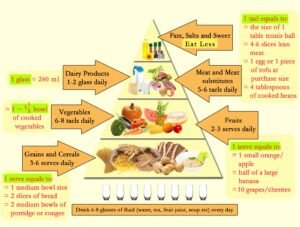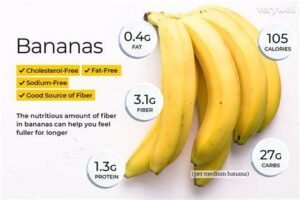Introduction to the Best Baby Utensils for 2023
Contrary to popular belief, not all baby utensils are created equal. Many parents assume that any spoon or fork labeled “for babies” must be safe and appropriate. But that’s not always the case. Picking the right utensils is more than just grabbing the cutest set from your local store. It’s about making mealtime safe, enjoyable, and developmental for your little one. In this guide, we’ll help first-time moms and seasoned parents alike discover the top utensils for their babies that combine safety, functionality, and durability.
Why It’s Crucial to Choose the Right Baby Utensils
When it comes to feeding your baby, the right utensils do more than just move food from the plate to their mouth. They play a crucial role in your child’s development and safety. Here’s why picking the right set is crucial:
Safety First:
The foremost concern for any parent is their child’s safety. Baby utensils should be free of harmful chemicals and small parts, featuring soft edges and non-toxic materials. Opting for BPA-free, silicone, or high-quality stainless steel can prevent health risks associated with cheaper plastics.
Developmentally Appropriate:
Baby utensils are not just tools for eating; they are also vital for developmental milestones. They help in developing fine motor skills and coordination. Ergonomic handles suited for little hands can make self-feeding easier and more effective, fostering independence at a young age.
Ease of Use and Cleaning:
Let’s face it, babies are messy eaters, and simplicity is key. Look for utensils that are easy to handle, both for you and your baby. They should be easy to clean, preferably dishwasher safe, to save you time and ensure hygiene.
Material and Durability:
Babies are known to throw, chew, and test their utensils in every way possible. Durable materials that can withstand these tests are essential. Silicone baby spoons, for example, are durable and gentle on babies’ gums. In contrast, stainless steel options offer longevity but should be checked for insulated handles to prevent heat transfer.
Incorporating keywords like “safe cutlery for toddlers” and “must-have baby feeding tools” isn’t just about ranking well on search engines—it’s about ensuring parents have the information they need at their fingertips. Choosing the right baby utensils is about combining safety with developmental benefits, making mealtime enjoyable and beneficial for your baby. Remember, the best baby utensils for first-time moms are those that provide peace of mind while fostering growth and independence in their little ones.
By understanding these key factors, parents can make informed choices about which utensils will best meet the needs of their children, ensuring that mealtime is a safe, enjoyable, and developmental experience. Stay tuned as we dive deeper into the top picks for baby utensils that every parent should consider!
Click to see an other blog
Essential Features of Top Baby Utensils
Many parents might think that the design of baby utensils is pretty standard. But there’s a lot more variety and important features to consider than one might expect. When shopping for the best baby utensils, it’s crucial to look beyond the color and cute designs and focus on the features that matter most for safety and ease of use.
- Material Safety: Always choose utensils made from safe, non-toxic materials. Look for labels like BPA-free and FDA-approved silicone or high-quality stainless steel. These materials ensure that the utensils do not leach harmful chemicals into your baby’s food and are safe for regular use.
- Ergonomic Design: Baby utensils should be designed with little hands in mind. Look for features like soft, chunky handles that are easy for babies to grip. This design not only makes it easier for them to feed themselves but also supports their hand-eye coordination and fine motor skill development.
- Usability: Consider how easy the utensils are for your baby to use. Silicone baby spoons that are slightly curved or have a flexible tip can help toddlers scoop up food more effectively. Utensils should also be balanced so they can rest on the side of a bowl without tipping.
- Ease of Cleaning: Opt for utensils that are easy to clean to ensure they remain hygienic. Dishwasher-safe utensils save time and ensure a thorough clean. Also, utensils without crevices or complicated textures prevent food buildup and bacteria growth.
Reviewing the Top 10 Best Baby Utensils
Now that you know what features to look for, let’s dive into our top 10 picks for the best baby utensils of 2023. Each product has been selected for its safety, durability, and ease of use, ensuring you get the best for your baby.
1. The Gentle Scoop Silicone Spoon:
This spoon tops our list for its ultra-soft silicone tip that’s gentle on gums, with a choke guard for added safety. Perfect for babies transitioning to solids.
2. Tiny Tots Stainless Set:
Featuring insulated stainless steel, this set includes a fork and spoon with ergonomic handles. Ideal for toddlers learning to eat independently.
3. Eco-Eaters Biodegradable Utensils:
If sustainability is a key concern, these utensils are made from biodegradable bamboo, safe and stylish.

4. Baby’s First Fork and Spoon Set:
This set features easy-grip handles and a fun design to keep meal times enjoyable. The utensils are made of a lightweight yet durable plastic that’s easy to handle.
5. Weaning Warriors Soft-Tip Spoons:
With a soft silicone tip and a comfortable handle, these spoons make it easy for babies to learn to feed themselves.
6. Little Grips Stainless Steel Trainer:
This utensil set is designed with unique curved handles that fit perfectly in tiny hands, helping your baby master the art of self-feeding.
7. Adventure Awaits Travel Utensil Kit:
Complete with a carrying case, these utensils are perfect for on-the-go families. They’re durable, easy to clean, and come in various fun colors.

8. Munchkin Mighty Grip Fork and Spoon:
This set’s handles are chunky and non-slip, making them easy for little hands to grasp firmly.
9. FeedMe Silicone Feeder Spoons:
These feeder spoons are great for infants just starting on purees. The built-in container holds food, and gentle squeezing sends it up to the spoon, making feeding fuss-free.
10. Toddlers’ Titanium Tackle Set:
Last but not least, this high-end set is made from titanium, ensuring durability and longevity, with thermal insulation to keep tiny hands safe.
Click to see an other related blog
How to Properly Clean and Maintain Your Baby Utensils
It’s a common misconception that baby utensils don’t require special care — after all, they’re just going to get dirty again, right? Wrong. Keeping your baby’s utensils clean and well-maintained is crucial not only for their health but also to extend the life of the utensils themselves. Here’s how you can keep those tiny spoons and forks in top shape:
- Wash After Every Use: Always wash baby utensils immediately after use. This prevents food residues from hardening, making them easier to clean. For parents on the go, even a quick rinse can make a big difference until you can wash them properly at home.
- Use the Right Detergent: Opt for mild, baby-safe detergents that are free from harsh chemicals. These detergents effectively clean without leaving harmful residues that could irritate your baby’s sensitive system.
- Dishwasher Safe: If you’re pressed for time, choose baby utensils that are dishwasher safe. Place them in the top rack to avoid warping and excessive heat. Silicone and high-quality plastic utensils are typically safe for this kind of cleaning.
- Sterilizing Utensils: Especially for younger babies, sterilizing utensils can be a wise move. You can boil them in water for about five minutes, use a microwave sterilizer, or a UV sterilizer for a deep clean that removes nearly all germs.
- Regular Checks for Damage: Regularly inspect your baby’s utensils for any signs of wear and tear such as chips, cracks, or fading. Damaged utensils should be replaced immediately to avoid any safety hazards.
Incorporating LSI keywords like “Baby utensils dishwasher safe” and “How to clean baby spoons and forks” not only assists in ranking but also addresses common concerns that parents might search for, ensuring your blog is both helpful and SEO-friendly.
Baby Utensils and Weaning: Making the Right Choice
Choosing the right utensils isn’t just about what’s safe or easy to clean — it’s also about supporting your baby’s transition to solid foods. A lot of parents think any small spoon or fork will do, but selecting the right type can significantly ease this important phase. Here’s how to make the best choices:
- Start with Soft Spoons: When you first introduce your baby to solids, soft-tipped silicone spoons can be less intimidating and gentler on their gums. These spoons are flexible and often come with a shallow scoop, which helps babies learn to take an appropriate amount of food.
- Introduce Forks Slowly: As your baby gets more comfortable with spoons, introduce forks designed for toddlers. Look for ones with rounded, blunt tines that can pick up food easily without posing a safety risk.
- Consider the Grip: Make sure the utensils have chunky, easy-to-hold handles. Ergonomic designs that fit into tiny hands can boost confidence and encourage your baby to explore self-feeding, which is a critical step in their developmental journey.
- Choose the Right Material: As your baby grows, you might want to transition from silicone to more durable materials like stainless steel for utensils, which can handle the rigors of a toddler’s use while still being safe.

What to Avoid When Buying Baby Utensils
There’s a myth that as long as baby utensils look fun and colorful, they’re perfect for your little one. However, when it comes to choosing utensils for your baby, there are several key factors to avoid to ensure their safety and health:
- Avoid Cheap Materials: Low-cost plastics might be tempting because of their price, but they can contain harmful chemicals like BPA, PVC, or phthalates, which can leach into your baby’s food. Always opt for FDA-approved, BPA-free materials.
- Steer Clear of Small Parts: Utensils with detachable parts can pose a choking hazard. Ensure all components are securely attached and the utensil is sturdy.
- Ignore Non-Ergonomic Designs: Avoid utensils that are not designed for little hands. Proper ergonomics is crucial for your baby’s comfort and development. Look for utensils that promote a good grip and have a handle that fits well in tiny hands.
- Skip Overly Hard Materials: Initially, avoid metal or hard plastic utensils that could hurt your baby’s gums. Start with soft silicone that is gentle on their mouth as they learn the coordination of eating.
- Beware of Difficult-to-Clean Designs: If a utensil has lots of nooks and crannies, it can be a breeding ground for bacteria. Choose designs that are simple and straightforward to clean thoroughly.
Using terms like “Comprehensive review of baby spoons and forks” and discussing what to avoid helps to guide parents through the purchasing process, ensuring they make the safest choices for their little ones.
Shopping Guide: Where to Buy the Best Baby Utensils
Once you know what to look for and what to avoid, the next step is knowing where to find the best baby utensils. Here’s a guide to making your shopping experience a breeze:
- Specialty Baby Stores: These stores often offer a wide range of high-quality baby utensils that meet all safety standards. Staff usually have good knowledge and can provide personalized advice based on your needs.
- Online Marketplaces: Websites like Amazon, BuyBuy Baby, and Target are great for reading customer reviews and comparing prices and features from the comfort of your home. Look for products with high ratings and positive reviews that mention safety, durability, and ease of use.
- Local Department Stores: Many department stores have a dedicated section for baby products where you can find a variety of utensils. This option allows you to see and feel the products before buying.
- Eco-Friendly Shops: If you’re looking for sustainable options, check out stores that specialize in eco-friendly baby products. They often stock utensils made from biodegradable materials or sustainably sourced silicone.
- Parenting Forums and Blogs: Check out recommendations on parenting forums and blogs. These can be goldmines for finding tried and tested products that other parents swear by.
By steering clear of common pitfalls and knowing where to look for quality products, you can make informed decisions that ensure mealtime is both safe and enjoyable for your baby.
Why These Are the Best Baby Utensils You Can Buy
After exploring the variety of baby utensils available and understanding what to look for and what to avoid, it’s clear that choosing the right utensils is about more than just feeding your baby. It’s about ensuring safety, promoting developmental milestones, and making mealtime enjoyable for both you and your little one.
Gentle Scoop Silicone Spoon
It stands out for its ultra-soft silicone tip, ideal for babies just starting on solids. This spoon is perfect for tender gums, with a choke guard for safety. Its primary advantage is the gentle material and the safety features, though it may not be as durable as some harder materials when babies begin teething more aggressively.
Tiny Tots Stainless Set
It offers a fantastic transition as your child grows, with insulated stainless steel that keeps the utensils at a safe temperature. The ergonomic design is suited for little hands, which aids in the development of fine motor skills. While the durability is a significant plus, these might be a bit heavy for the youngest diners just starting to self-feed.
Eco-Eaters Biodegradable Utensils
These are perfect for environmentally conscious families, made from sustainable materials without sacrificing functionality or safety. The major downside is that biodegradable materials may not have the longevity of silicone or stainless steel.
Baby’s First Fork and Spoon Set
It,s designed to make mealtime fun while being highly functional. The bright colors and easy-grip handles encourage babies to learn to feed themselves. However, being made of plastic, these might not be the best option for those looking to avoid all plastics, even if they are BPA-free.
Weaning Warriors Soft-Tip Spoons
These are a standout for their ease of use during the initial stages of weaning. They are soft yet durable enough to handle the rigors of daily use. The only con might be that as your baby grows, you’ll need to transition to utensils that support more skillful eating.
Each product listed has been designed with baby safety and development in mind, offering various options depending on your preferences and your baby’s needs. Whether you prefer eco-friendly materials, ergonomic designs, or utensils that grow with your child, there is something here for everyone.
while all these products are top-rated, the best utensil set for your baby will depend on your specific requirements, such as age, developmental stage, and whether sustainability is a priority for your family. Each set offers unique benefits, but overall, the Tiny Tots Stainless Set might be the best long-term investment for its durability and developmental benefits, making it our top recommendation. Choose wisely and remember that the right utensils can make a big difference in your child’s feeding journey.
Frequently Asked Questions:
What materials are safest for baby utensils?
The safest materials for baby utensils include BPA-free plastics, FDA-approved silicone, and high-quality stainless steel. These materials are durable, safe for your baby, and free from harmful chemicals.
How often should I replace my baby’s utensils?
It’s good practice to inspect your baby’s utensils regularly for signs of wear like scratches, discoloration, or chips. Generally, replacing them every few months is a safe bet, especially when they’re used daily.
Can baby utensils go in the dishwasher?
Many baby utensils are dishwasher safe, but always check the manufacturer’s recommendations. If they are, place them on the top rack to avoid the heating element which can cause warping.
Are there any specific features to look for in baby forks and spoons?
Yes, look for utensils with ergonomic handles that are easy for little hands to hold, soft tips for safety, and materials that are easy to clean. For forks, ensure the tines are rounded and not too sharp.
Is it better to start with a spoon or a fork for a baby learning to eat?
Start with a spoon as it’s easier for babies to scoop food and it poses less of a safety risk. Introduce a fork once your baby is more proficient at self-feeding and can handle more solid pieces of food.
How do I clean baby utensils if I don’t have a dishwasher?
Wash them with hot soapy water using a gentle detergent. For extra sterilization, you can boil them in water for about five minutes, especially if they are made of silicone or metal.
What should I avoid when buying baby utensils?
Avoid utensils made from cheap materials that could contain toxins. Stay away from designs with small, detachable parts that could pose a choking hazard, and avoid utensils that are difficult to clean, as they could harbor bacteria.
Where can I buy eco-friendly baby utensils?
Eco-friendly baby utensils can be found in specialty baby stores, online marketplaces, and stores that specialize in eco-friendly products. Look for utensils made from sustainable materials like bamboo or recycled plastics.
What are the signs that my baby is ready to use utensils?
Signs include showing interest in your eating utensils, being able to sit up without support, and being able to pick up food or objects with their fingers. These milestones generally indicate readiness to start using baby utensils.
Are there utensils specifically designed for babies with teething?
Yes, some utensils are designed with silicone tips that are soft and gentle on gums, which can be soothing for teething babies. Look for features advertised as chew-friendly or teething-safe.





